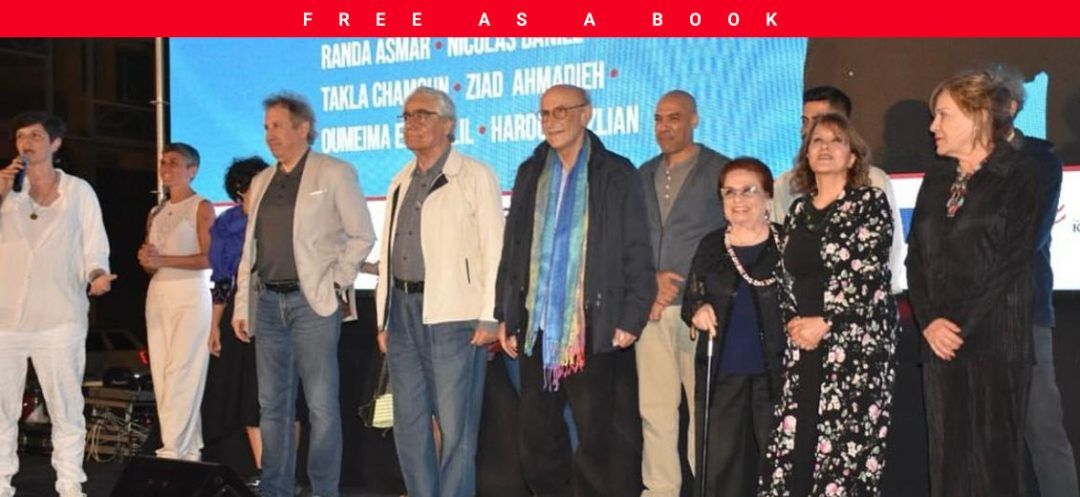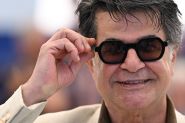
On May 30, 2024, the Beirut Spring Festival, organized by the Samir Kassir Foundation, was inaugurated. During this opening, the premiere of the eighth season of the documentary series Zyara was screened. The event took place before an audience of journalists, artists, and an audience passionate about the golden era.
The 16th edition of the Beirut Spring Festival kicked off yesterday, May 30, 2024, at 9 PM at Martyrs’ Square, marked by the absence of its founder, Gisèle Khoury. A tribute was paid to the great journalist who created the Samir Kassir Foundation after the assassination of the intellectual and writer in 2005. Randa Asmar, the festival director, honored the memory of the great absentee before giving the floor to Denise Jabbour, who announced the premiere of the eighth season of the documentary series Zyara (Visit).
This season of the internationally awarded series is a tribute to twelve great Lebanese artists, among the most prominent names in the fields of dance, theater, television, and music: Georgette Jbara, Roger Assaf, Rifaat Tarabay, Randa Kaadi, Fayek Hmaïssi, Ziad Al-Ahmadiyya, Mireille Maalouf, Takla Chamoun, Harout Fazlian, Omaima Al-Khalil, Nicolas Daniel, and Randa Amar.
The screening, organized by the association Home Cine Jam, was followed by a discussion session between the participants and the series’ commissioners, producer Denise Jabbour, director and cinematographer Muriel Abu Al-Rous, and the stars of the eighth season. These testimonies, which will be shown at international festivals, will be available in their entirety on YouTube starting mid-June. They focus on each artist’s beginnings and their vision of Beirut. However, it is impossible to cover each testimony in this column. Ici Beyrouth will cover the testimonies of the elders of our artists in the aforementioned fields.
[gallery link="none" size="large" ids="260018,260019,260020"]
Georgette Gebara, Roger Assaf, Mireille Maalouf, Rifaat Tarabay, Omaima Al-Khalil, and Harout Fazlian
Georgette Gébara shared her sincere memories: “While the Lebanese were fleeing the daily bombings and massacres during the war, I was building, stone by stone, the dance school in Zouk. It spanned 1240 m², with ceilings 4.5 meters high and mirrors of the same height. I wanted to defy death. The choreography of The Dream Maker by Raymond Gébara, I created under the bombs, in the shelter of the building. I understand the Lebanese who emigrated and returned for vacations, but let them not say: What did you do? We narrowly escaped death and worked hard, winning awards and distinctions for Lebanon. I lived in Hamra. I had to pass through several checkpoints before reaching Jounieh to take the boat to Larnaca, then jump on a plane to Carthage or Baghdad.”
Although away, Roger Assaf also shared his memories: “Originally from Beirut, what to say about this city? In one of its neighborhoods, there were 15 cinemas and a street entirely dedicated to books! All ideologies flourished, all religions coexisted in respect, all places of worship stood next to each other. Beirut was freedom, the possibility of communication between very different people. They say, ‘Beirut will rise from its ashes like the Phoenix.’ I believe they have completely destroyed it.”
Actress Mireille Maalouf confides: “The worst moment of my life was seeing Beirut after 2019, when the failure of the revolution gave way to inertia. We are fading away slowly, inexorably. I started doing theater in 1968. My father, who was a serious man and a well-known lawyer, did not know how to introduce me to his friends. “My daughter is an actress!” As much as saying a buffoon! It was very frowned upon. Everyone tried to dissuade me. To no avail. You can’t change your nature. The first time my father saw me on stage, I was playing with Peter Brook in Paris. My memory of Beirut? Hamra was like Broadway. We met writers, poets, artists. We were happy. I returned in '80, despite the war. But what is happening today is unbearable. Killing the dreams of a people is a crime! We are living in the age of Kali Yuga, or total destruction. Theater contributes to sublimating the human dimension in a person.”
[gallery link="none" size="large" ids="260027,260026,260025,260024,260023,260022,260021"]
Rifaat Tarabay, whose choice to become an actor earned him his father’s mockery, especially since his family was politically engaged in Batroun, echoes these words: “Do you want to end up as a pathetic jester?” my father scolded me. Mounir Abou Debs entrusted me with a role in his play, Jesus. The next day, my photo from the play was on the front page of the An Nahar newspaper. The cat was out of the bag quickly.” Then, nostalgically, he adds, “The one who gave Lebanese theater its letters of nobility is the artist Chouchou, although he was illiterate. His presence on stage galvanized the audience, transported the public. Beirut is more important than Lebanon. The stones of Beirut reveal everything. Who was the godfather of this cultural effervescence? A café named Horse Shoe, in front of the An Nahar newspaper. The entire political class, writers, playwrights, painters, sculptors, choreographers, and musicians met there. Great intellectuals from the Arab world paid for a trip to Beirut just to attend a play or an artistic activity and then took the plane back. This is the greatness of Beirut. Today, it is literally under the rubble.”
Between two refrains, Omaima el Khalil recounts in a sad voice: “My father set me on the path. He discovered my talent and tried to find me a place in the sun. But I fought alone, and it was quite tough. The war years were horrific. I saw the wounded and the bodies of the dead arriving at our village. But we were united for the same cause. The first time I went down to Beirut, I was dazzled by the lights! Beirut is now dark. It is a fallen queen, but still retains a mysterious, indescribable charm.”
The conclusion comes with a note of optimism, in the words of the philharmonic conductor Harout Fazlian: “My father, Berge Vazlian, was a great director. I accompanied him when he worked with the Rahbani brothers. I was ten, eleven, or twelve years old. I stood there, happy to listen to our great diva, Fairuz, sing. Fate is incredible! Who would have said that I would one day conduct the orchestra while Fairuz sang in Lebanon or Amsterdam? Life is really beautiful! I conducted four evenings in Baalbeck, including one that was broadcast in 2020 during the pandemic. I wanted my music to have the effect of electric shocks that revive the dying. Twenty million people watched the concert. Why emigrate? To eat camembert instead of halloumi? We stay here, and we will work…”
Read more



Comments